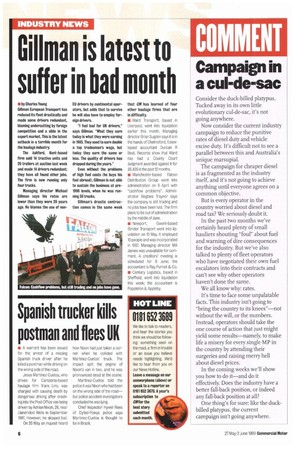CO ENT
Page 8

If you've noticed an error in this article please click here to report it so we can fix it.
Campaign in a cul-de-sac
Consider the duck-billed platypus. Tucked away in its own little evolutionary cul-de-sac, it's not going anywhere.
Now consider the current industry campaign to reduce the punitive rates of diesel duty and vehicle excise duty. It's difficult not to see a parallel between this and Australia's unique marsupial.
The campaign for cheaper diesel is as fragmented as the industry itself, and it's not going to achieve anything until everyone agrees on a common objective.
But is every operator in the country worried about diesel and road tax? We seriously doubt it.
In the past two months we've certainly heard plenty of small hauliers shouting "foul" about fuel and warning of dire consequences for the industry. But we've also talked to plenty of fleet operators who have negotiated their own fuel escalators into their contracts and can't see why other operators haven't done the same.
We all know why: rates.
It's time to face some unpalatable facts. This industry isn't going to "bring the country to its knees"—not without the will, or the numbers. Instead, operators should take the one course of action that just might yield some results—namely, to make life a misery for every single MP in the country by attending their surgeries and raising merry hell about diesel prices.
In the coming weeks we'll show you how to do it—and do it effectively. Does the industry have a better fall-back position, or indeed any fall-back position at all?
One thing's for sure: like the duckbilled platypus, the current campaign isn't going anywhere.
























































































































